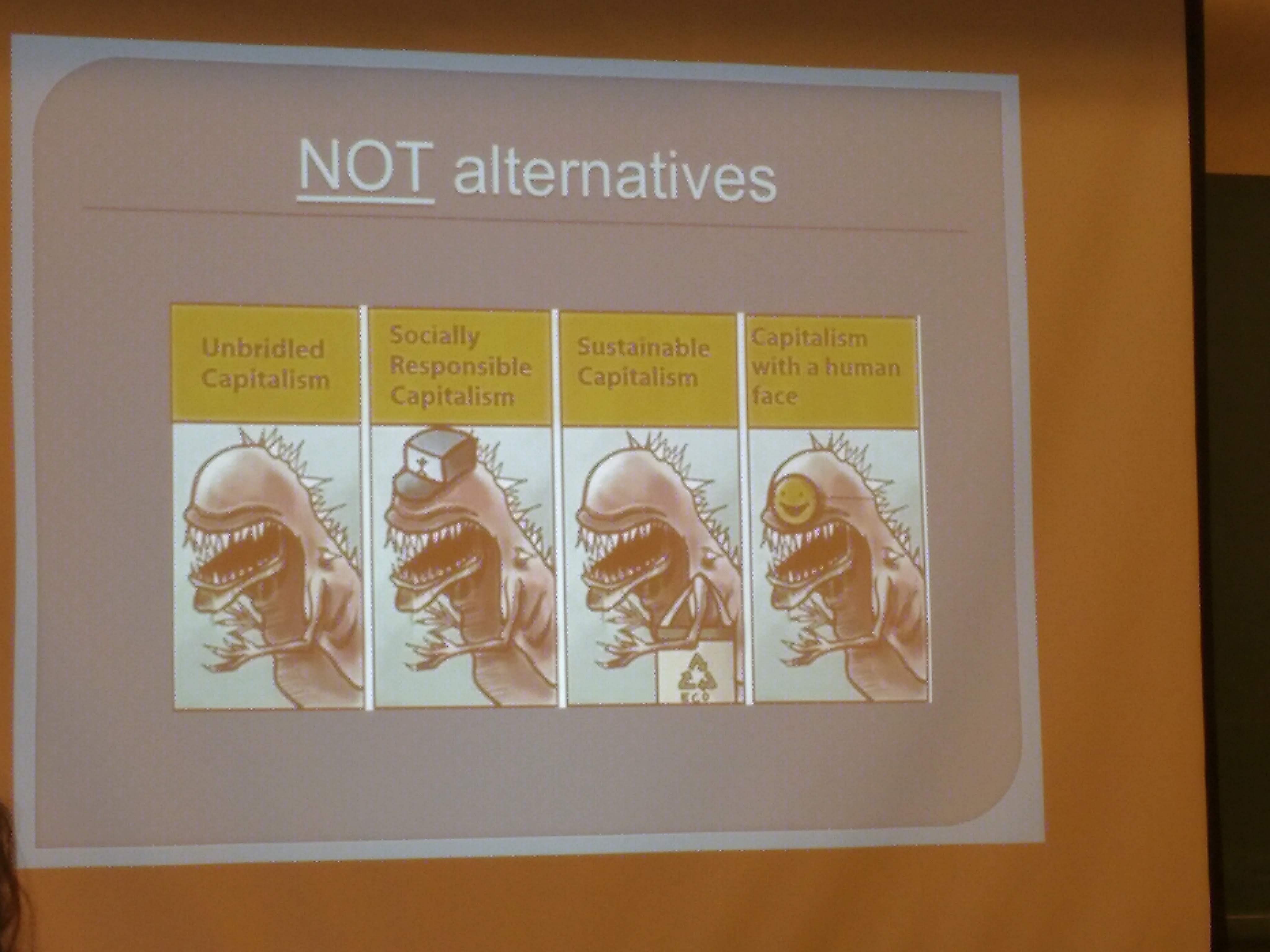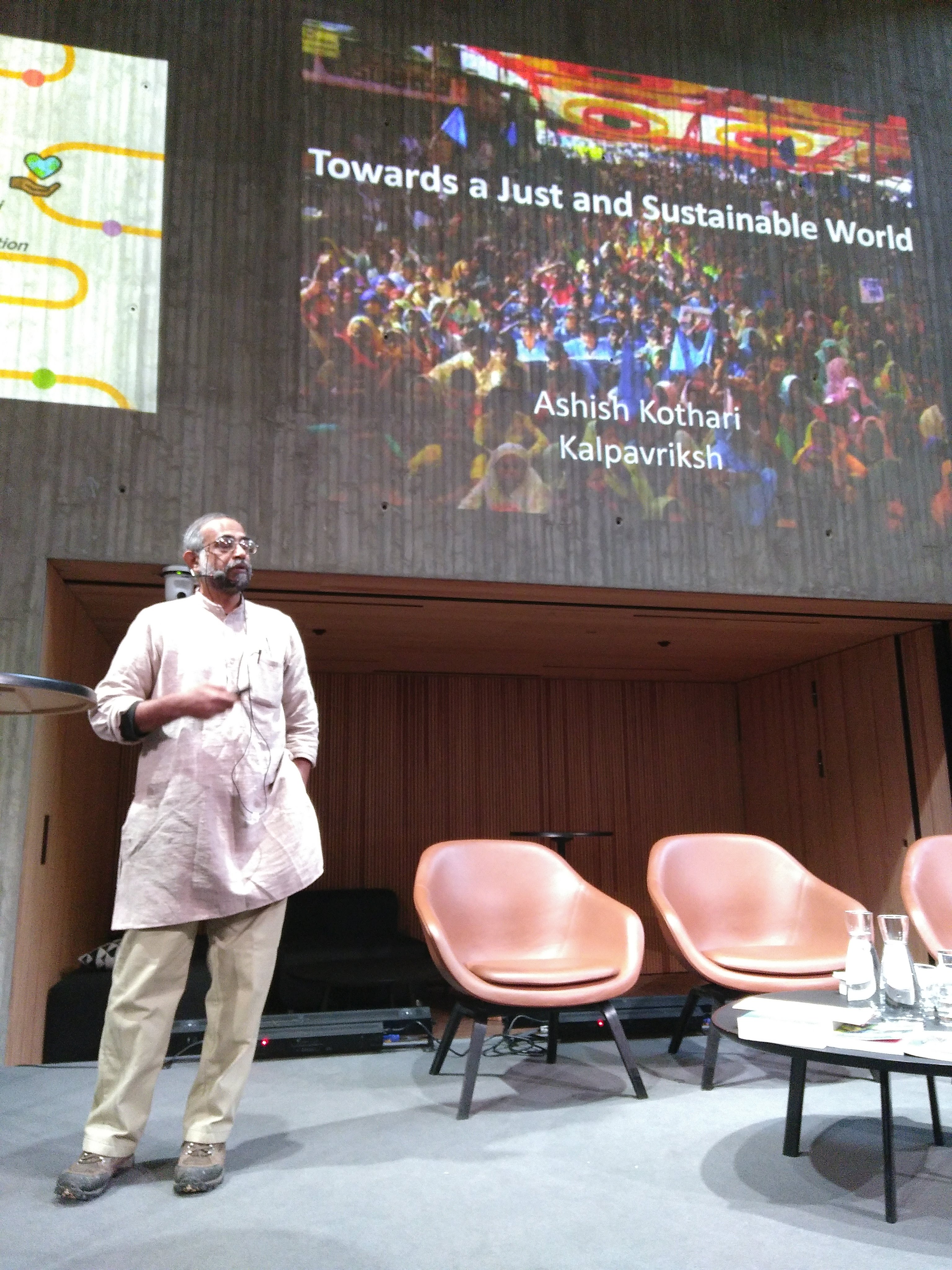Development Days 2019, Helsinki 27.2.-1.3. Repositioning global development: Decolonial thinking and bringing forth systemic alternatives
In this post, we have a report from ESDLA member Laura Kumpuniemi, about a summary of some discussions held in the most recent Development Days Conference in Helsinki, past 27.2-1.3. 2019.
Laura is a Ph.D. researcher in the doctoral programme of Social and Cultural Encounters at the University of Eastern Finland. Her research is about solidarity economy in Bolivia.
The Development Days conference is an annual event organised in Helsinki by the Finnish Society for Development Research. This year’s conference focused on development strategies suggested as alternatives to globalisation and the dominant development model that have been linked with pressing global inequalities, the ecological crisis, and the rise of extremism and populism.
In this summary, I will present some conference discussions that can be of interest to people dealing with development issues. These presented ideas were brought up by two of the key speakers of this year’s conference. Ashish Kothari is an environmentalist from India and is working on development, environment interface, biodiversity policy, and alternatives. Another keynote speaker was Rosalba Icaza Garza from the Erasmus University Rotterdam and she is interested in decolonial thinking and the ‘international’, academia’s role in the promotion of autonomy, learning as liberation/liberation of learning and plural feminisms for plural liberations.
The bulldozer of development and its bandages
According to Kothari, development has not been the best solution to the challenges it has tried to confront. He refers to development as a bulldozer that rather destroys what was there instead of building on things that already exist. The solutions offered through development, like the Sustainable Development Goals or the green economy, are just bandages and more radical (means to go to the roots) changes would be needed. The focus needs to be more on what makes us happy and what supports wellbeing instead of discussing what Kothari refers to as the “oxymoron of sustainable development”.
Icaza Garza focused on decolonial thinking in her speech. She painted a picture of development as an articulation of modernity’s movement of representation and appropriation and the tendency of dividing the world into opposite sides where the poor and the earth are seen as the other. According to Icaza Garza, development’s baseline has been the assumptions of anthropocentrism and the economy’s basis in growth through which nature has been and still is treated as an object and a resource.
Also, Icaza Garza pointed out that decolonisation will not take place through altering development. There has been a discussion about different modifications that try to tweak the system and create things like socially responsible capitalism, sustainable capitalism or capitalism with a human face. In a working group about alternatives to development, a Ph.D. researcher and activist Marta Musić pointed out that these modified versions of capitalism are not real alternatives. A thorough decolonialisation needs to deal with the ethnocentric and anthropocentric basis of development thinking. Decolonial approach to development is about unlearning modern colonial subjectivities, questioning dominance and the processes of negation of alterities. Icaza Garza suggests replacing the ways of working and learning resulting from modernity with practices of conviviality – learning together without teachers, professors, and disciplines. (More on conviviality, see The Convivialist Manifesto 2014.)

Marta Musić showed an example of different versions of capitalism suggested as fake alternatives. Photo: Laura Kumpuniemi.
Alternatives to development
Kothari highlighted the many alternatives that are trying and creating more just and sustainable futures and confronting the structural roots of unsustainability and equity and different forms of oppression (capitalism, patriarchy, the concentration of power, racism, among others). Essentially, these are alternatives to development and, to a certain extent, to capitalism. As such, these alternatives are forms of resistance based on different worldviews and different ways of being mostly taking the form of grassroots movements that aim for structural change through practising contextually adequate measures for problems people and the environment are facing.
One of the examples, eco-swaraj, is an approach rooted in India and is based on radical ecological democracy. The aim of eco-swaraj is to achieve human well-being through empowering citizens and communities to participate in decision-making, ensuring socio-economic equity and justice and respecting the limits of the earth. In eco-swaraj, the community serves as the basic unit for organisation instead of the state or private corporations and responsibility for others is considered an essential element of community.
Kothari showed how the systemic alternatives (need to) consider five interlinked spheres of transformation: radical democracy, economic democracy, social justice and well-being, cultural knowledge diversity, and ecological resilience and wisdom including the rights of nature. One dimension in these alternatives is the radicalisation of people’s economic thinking to cover more than just the profit and competition as a basis for the economy. The alternatives also have common characteristics in the values they share from diversity, collectivity, and dignity to pursuit of happiness, and from autonomy, solidarity, enoughness, and ecoregionalism to non-violence.
Kothari also presented an interesting initiative, the global tapestries of alternatives, that is meant to gather together these different alternatives to discuss and act together, thus, creating a greater political mass. This is what is needed to bring about real change instead of fighting different fights in isolation from the other fronts.

Ashish Kothari speaking about sustainable alternatives at the Think Corner, Helsinki. Photo: Laura Kumpuniemi.
Ending with self-care
At the closing ceremony of the conference, we heard recaps from many of the working groups that had taken place during the two days. One of the working groups had taken practical steps in the lines of Icaza Garza’s ideas to decolonise academia. The group had started their session with a meditation to encourage self-care and bringing the focus into the session at hand by trying to get out of the stress cycle that is present in many people’s lives constantly. It was interesting to hear that the academic world can let in some glimpses of other, less rigid ideas and approaches and embrace the idea of caring for the self. This is forgotten all too often and it would be welcome to also give more attention to other, alternative dimensions of the academic minds than just the intellectual. This could contribute to decolonising the academic practice through a healthier working environment in the pressure of competition and focus on achievement.
Erratum 1: [14.5.2019]
Reference on picture 1 has changed by request of the blog’s author:
Marta Musić showed an example of different versions of capitalism suggested as fake alternatives. Photo: Laura Kumpuniemi.
In the original text, the reference on picture 1 was:
Rosalba Icaza Garza showed an example of different versions of capitalism suggested as fake alternatives. Photo: Laura Kumpuniemi.
Erratum 2: [14.5.2019]
This part was changed by request of the blog’s author:
There has been a discussion about different modifications that try to tweak the system and create things like socially responsible capitalism, sustainable capitalism or capitalism with a human face. In a working group about alternatives to development, a Ph.D. researcher and activist Marta Musić pointed out that these modified versions of capitalism are not real alternatives.
In the original text, the reference to Marta Musić was missing:
There has been a discussion about different modifications that try to tweak the system and create things like socially responsible capitalism, sustainable capitalism or capitalism with a human face. These are not real alternatives, however. A thorough decolonialisation needs to deal with the ethnocentric and anthropocentric basis of development thinking.